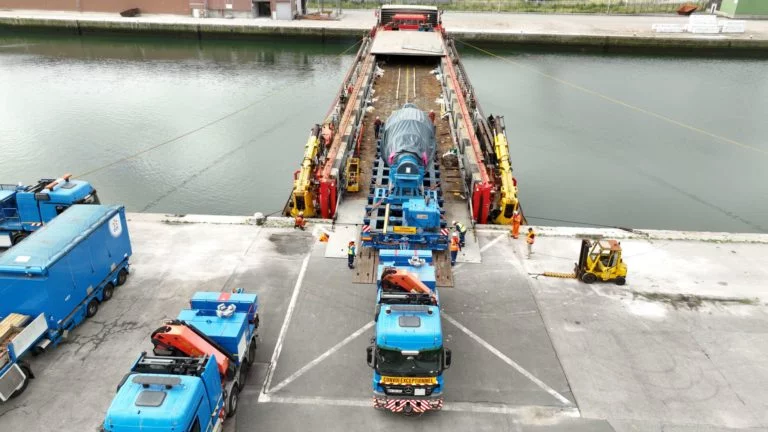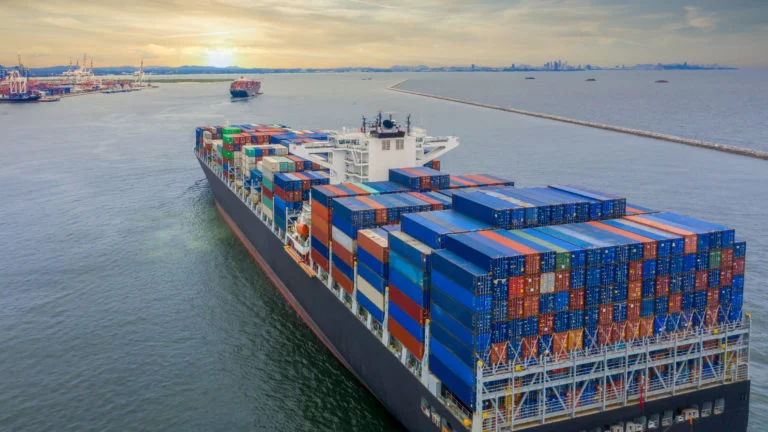Experience and track record matter in freight forwarding, according to Paul Everley, Global Head of Forwarding, Peters & May.
Freight forwarders are faced with an increasingly complex and rapidly evolving market. Importers and exporters are contending with changing customs clearance rules, geopolitical issues, stricter environmental pressures and a rapidly shifting trade and tariffs landscape. Global logistics management for even the most standard and commoditised item is not spared from complications.
These challenges are magnified when it comes to transporting unconventional, delicate or time-sensitive items. The stakes are high for specialist freight forwarding, which requires a degree of consultancy and a hands-on approach. It’s not a case for a one-size-fits-all solution.
Is it worth it? Separating cost from value
Freight forwarding for specialist items is as much about risk management as it is about the transportation of the item. Freight forwarders prioritise preventing delays and, when managed correctly, can actually give customers ‘time back’.
Having the right support- underpinned by experience and expertise- goes a long way. While on paper, specialist freight forwarding carries a fixed cost, the reality is often very different without proper support and planning. Incorrect customs declarations, or logistical roadblocks from not understanding the item or product, can cause severe delays, creating huge headaches for importers and exporters, all of which, ultimately, end up ramping up costs.
Having experience of shipping a particular product and knowing the customs landscape is a competitive advantage. An experienced freight forwarder will plan thoroughly and will have access to all the right information and documentation up front to navigate changing customs rules. For example, classification codes may change, or permit requirements can alter, and both scenarios can have ramifications for shipments and costs. It’s this responsiveness, industry knowledge and experience- the consultative approach- that sets apart newer entrants from established forwarders who will be better positioned to anticipate challenges and take proactive action to minimise risks and costs in the long-term.
A strong example of distinguishing cost from value is demonstrated by Peters & May’s freight forwarding team, who arranged premium ‘must-ride’ air freight services for a client shipping laboratory equipment to the USA. The shipment was time-sensitive, requiring on-site engineers to install the equipment upon arrival. Previously, the client had faced significant and costly delays when their cargo was bumped from flights due to reliance on standard air and sea services. Although the ‘must-ride’ option came at a higher upfront cost, it ultimately saved the company time and money, safeguarded their reputation as a reliable partner, ensured timely delivery, and helped secure future business.
Partnerships and scale under one roof
Knowledge is only valuable if it’s used correctly. Specialist freight forwarders with in-house customs expertise ensure that your customs experts and logistics management teams are aligned. By offering a single, trusted point of contact for freight forwarding and customs support, customers can minimise duplication of work. Their one point of contact will already understand the customers’ objectives and have familiarity with the product, customs and regulatory expertise. This contributes to better value for the customer through more control of the logistics process and more streamlined workflows, so that when problems do occur, there is typically an easier, more efficient ‘work around’.

Being a specialist also means that there are other advantages from a standardised freight forwarder, including inward and outward processing between the EU and the UK, and visa-versa, as well as customs warehousing capability in the UK.
Smarter Control, Lower Costs
To have both freight and customs support managed by one specialist freight forwarder is also helpful in managing costs and unforeseen changes, affording more flexibility.
For example, when supporting clients for customs clearance, it is not uncommon to see that the freight was arranged by suppliers at a higher fee. This can easily be avoided by identifying the issue first and arranging for freight services at reduced costs. This means that a client not only saves money on shipping, but assumes control over their inbound supply chain, engendering confidence that the goods are being shipped for the client’s benefit and not the supplier’s. This centralised oversight allows for more flexibility if plans for production shift, and reduces wasted time if goods are unavailable for production – minimising the impact on a client’s cashflow and maintaining industry reputation.
There are several benefits of working with a specialist company, but the biggest advantage is simple: a deep understanding of what you do and what you want. Working with a freight forwarder that speaks your language, and is both service and solutions-oriented, means that you can focus on your core responsibilities without the additional burden of trying to navigate regulatory changes, leaving your forwarder to further alleviate the pressure of the whole shipping process. It is an investment in dependability and risk management, that gives the customer back valuable time.
similar news














